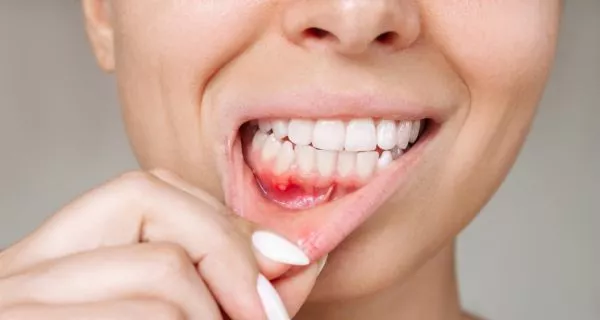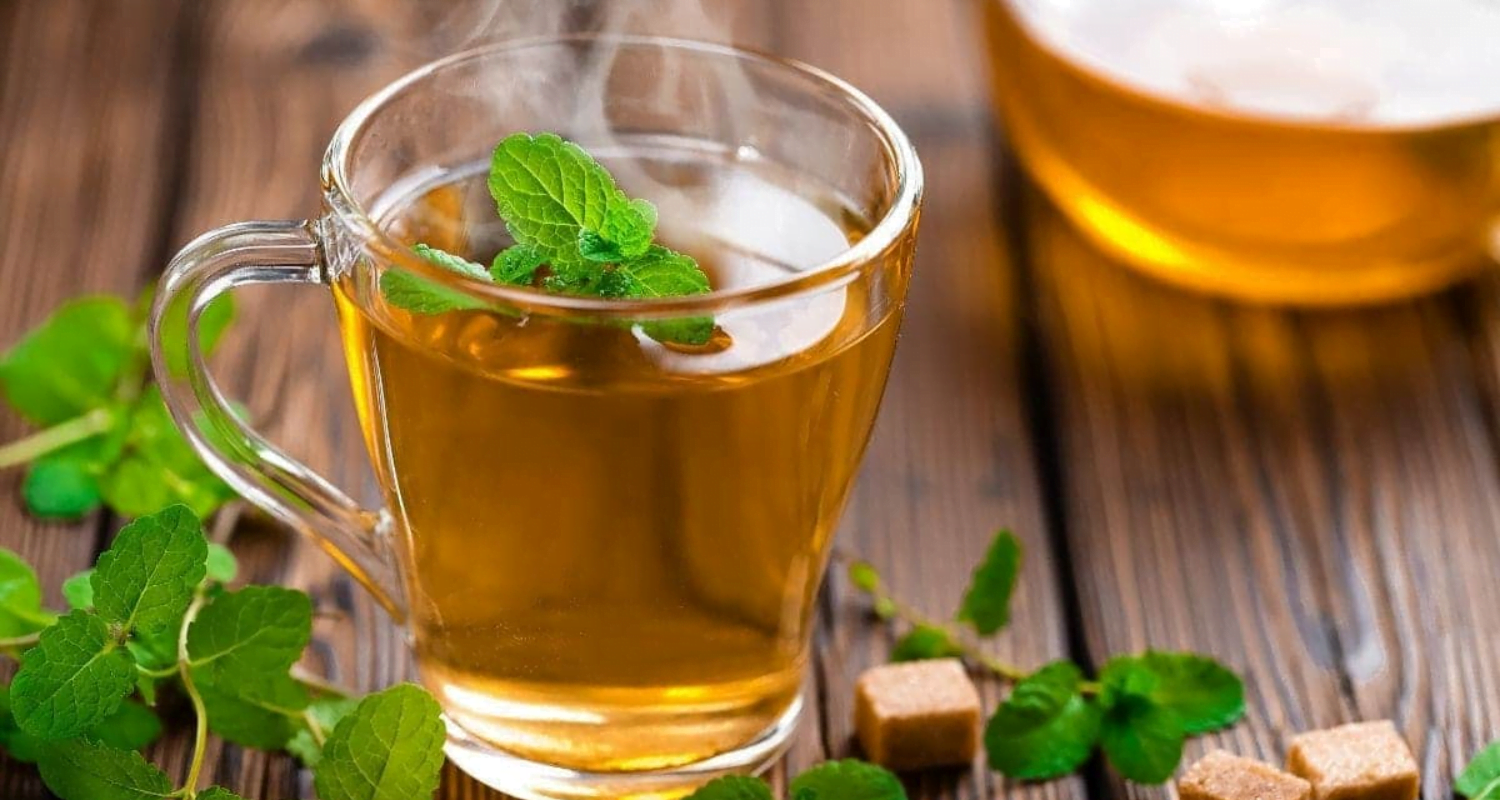Last Updated on: 15th December 2025, 08:17 am
Yes, green tea for oral health offers many natural benefits. It helps reduce harmful bacteria, protects gums, lowers the risk of cavities, and fights bad breath. Thanks to its antioxidants, green tea supports a healthier mouth when used daily along with brushing, flossing, and regular dental visits.
Did you know that drinking green tea often can keep your mouth healthy? Studies show that green tea contains natural compounds that are beneficial for teeth and gums.
Green tea is much more than a soothing drink. Research shows that it can fight bacteria, reduce plaque, and protect tooth enamel.
This article will immerse you in the fascinating world of green tea, covering its ability to maintain a healthy smile with everyday use.
How does green tea for oral health work?

Green tea contains natural compounds called catechins and polyphenols that work as antioxidants and natural antibacterials.
In simple terms, they protect the mouth by fighting harmful bacteria, reducing inflammation, and protecting the tissues that hold teeth in place. As a result, green tea for oral health helps keep gums healthier, teeth stronger, and the mouth cleaner overall.
Below are the five main ways green tea improves oral health.
How does green tea help with gum disease?

Drinking green tea regularly may help reduce gum swelling and bleeding, especially in people with gum disease.
Green tea works by:
- reducing the substances in the body that cause gum inflammation.
- blocking certain enzymes that break down the tissue supporting the teeth.
- protecting the bone around the teeth by slowing the cells that cause bone loss.
- helping damaged gum tissue heal over time.
In short, green tea helps protect and support the structures that keep teeth strong and stable.
How does green tea help prevent tooth decay?
Green tea helps control cavities by acting directly on the harmful bacteria in the mouth.
It helps by:
- damaging the outer layer of bacteria, making it harder for them to survive.
- slowing down bacterial enzymes that help bacteria grow and spread.
- reducing the number of cavity-causing bacteria.
- Preventing bacteria from sticking to tooth surfaces.
- lowering acid production in the mouth.
- providing natural fluoride that helps rebuild and strengthen tooth enamel.
This creates a healthier environment in the mouth and helps protect teeth from decay.
How does green tea reduce bad breath?

Bad breath is often caused by bacteria that release bad-smelling gases.
Green tea helps by:
- reducing bacterial growth in the mouth.
- lowering the production of methyl mercaptan, a gas that causes bad breath.
- acting as a natural deodorizer and mouth freshener.
As a result, green tea is helpful for keeping your breath fresh.
How does green tea help after smoking?
Smoking causes oxidative stress, which damages oral tissues and slows healing.
Green tea helps by:
- neutralizing harmful molecules called free radicals.
- restoring the balance between damaging and protective substances in the mouth.
- protecting gums and soft tissues after quitting smoking.
- helping to reduce stress and anxiety, which can support staying smoke-free.
These effects help the mouth recover and stay healthier after tobacco use.
Can green tea help prevent oral cancer?
Green tea contains polyphenols that act as strong antioxidants.
They help by:
- reducing free radicals that damage DNA.
- protecting cells from changes that can lead to cancer.
- showing protective effects in animal studies, especially in early oral lesions.
However, more studies in humans are needed. Green tea should not be used as a treatment, but it may help support overall oral health.
How can you use green tea for oral health?

Adding green tea to your daily routine is easy. You can use it in different ways:
- Drink one cup of green tea daily, without sugar.
- Use cooled green tea as a natural mouth rinse.
- Place a warm green tea bag on sore gums for relief.
- Use oral care products with green tea, like toothpaste or mouthwash
These options make green tea for oral health easy and practical.
Are there oral care products with green tea?
Yes, many toothpastes and mouthwashes now include green tea extract.
These products may help:
- reduce plaque.
- support gum health.
- fight bad breath.
- offer a more natural oral care option.
Of note, they are a good choice for people looking for gentle, plant-based ingredients.
Is green tea better than traditional oral care products?

Traditional toothpaste and floss are still very important. Green tea does not replace them, but it can add extra benefits.
Green tea products:
- can be as effective as some chemical mouthwashes.
- have fewer side effects.
- help freshen breath naturally.
- support enamel strength.
The best results come from using both together.
Are there any precautions when using green tea for oral health?
Yes, a few simple tips to keep in mind:
- Use green tea in moderation to avoid tooth staining.
- Avoid adding sugar.
- Talk to a dentist if you have sensitivity or medical conditions.
- Always continue brushing, flossing, and dental checkups.
Is green tea worth adding to your oral care routine?
Green tea is a delicious and refreshing drink as well as a powerful ally for oral health.
From preventing gum disease to fighting bad breath and protecting against oral cancer, the oral benefits are extensive and well-founded.
Incorporating this ancient beverage into your daily oral care routine can be a simple but effective step toward optimal oral health.
Frequently Asked Questions
Can green tea replace toothpaste or mouthwash?
Can green tea help prevent cavities?
Are toothpaste and mouthwash with green tea effective?
Can green tea stain teeth?
Is green tea safe for people with sensitive teeth or gums?
Voice and Search (Q&A)
How can I use green tea for a fresh breath?
You can drink green tea or use a green tea mouthwash. It helps reduce bacteria that cause bad breath naturally.
Can green tea help with bleeding gums?
Yes, green tea reduces inflammation and bleeding in the gums and supports the healing of damaged gum tissue.
Is green tea good for my teeth?
Yes, green tea helps fight harmful bacteria, protects gums, and keeps teeth stronger when used with regular brushing and flossing.
Share
References
1. Khurshid, Z., Zafar, M. S., Zohaib, S., Najeeb, S., & Naseem, M. (2016). Green tea (Camellia sinensis): Chemistry and oral health. The Open Dentistry Journal, 10(1), 166–173. https://doi.org/10.2174/1874210601610010166
2. Chatterjee, A., Saluja, M., Agarwal, G., & Alam, M. (2012). Green tea: A boon for periodontal and general health. Journal of Indian Society of Periodontology, 16(2), 161–167. https://doi.org/10.4103/0972-124X.99256
3. Snider, J. (2009). Green tea may promote periodontal health. The Journal of the American Dental Association (JADA), 140(7), 838. https://jada.ada.org/article/S0002-8177(14)64466-4/fulltext
4. Ware, M. (2025, March 27). What are the health benefits of green tea?. https://www.medicalnewstoday.com/articles/269538
5. WebMD. (n. d). Green tea: Overview, uses, side effects, precautions, interactions, dosing and reviews. WebMD. https://www.webmd.com/vitamins/ai/ingredientmono-960/green-tea
-
Dr. Yeidy Carolina Mesa [Author]
DDS Yeidy Carolina Mesa Passionate Dentist | Advocate for Accessible Oral Health Education Graduating from Universidad CES in 2022, I am a dedicated general dentist with a lifelong passion for helping others and making a meaningful impact in the world. My journey into dentistry began at the age of 7, inspired by my own experience with braces and overcoming a fear of the dentist. This personal journey shaped my mission to help patients conquer their own dental anxieties and embrace a healthier,...
View all posts
-
Nayibe Cubillos M. [Medical Reviewer]
Pharmaceutical Chemestry |Pharmaceutical Process Management | Pharmaceutical Care | Pharmaceutical Services Audit | Pharmaceutical Services Process Consulting | Content Project Manager | SEO Knowledge | Content Writer | Leadership | Scrum Master
View all posts
A healthcare writer with a solid background in pharmaceutical chemistry and a thorough understanding of Colombian regulatory processes and comprehensive sector management, she has significant experience coordinating and leading multidisciplina...Recent Posts
















